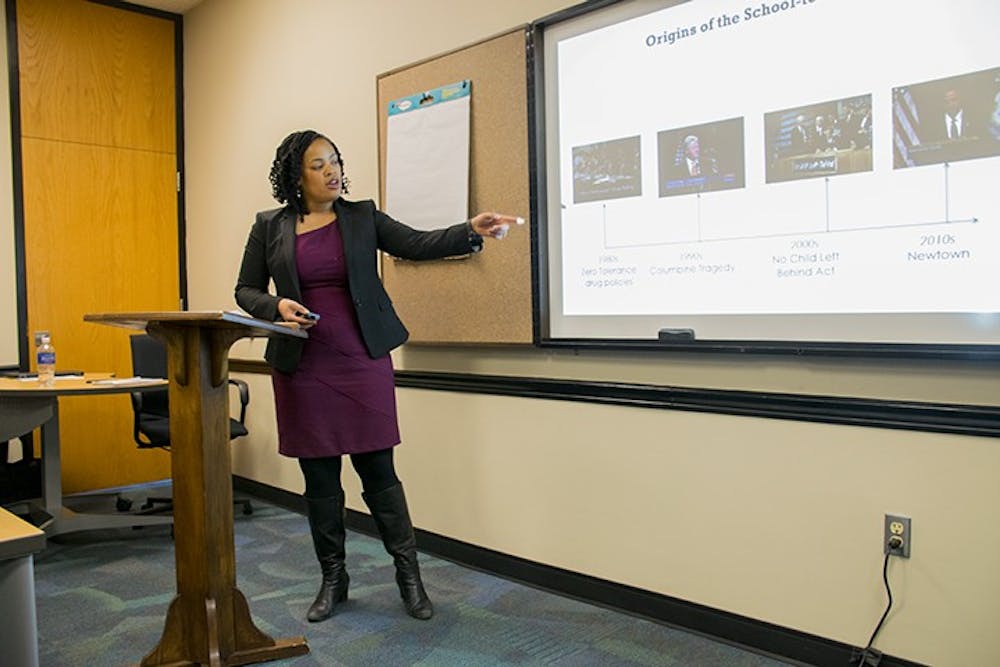The social struggles of minorities in the public school system were addressed in the Get in #Formation: Activism Against the Criminalization of Black Youth lecture Monday night.
The focus was on the school-to-prison pipeline that exists in the modern school system and how it proliferates the negative images of youths of color. The school-to-prison pipeline is a combination of harsh zero-tolerance school policies: suspensions, expulsions and school-based arrests which create a negative environment for young people. These policies primarily impact students of color, specifically black and Hispanic students.
Get in #Formation was presented by Thena Robinson-Mock, the project director of Ending the Schoolhouse to Jailhouse Track program who has worked to create awareness for the criminalization of minority youths and is working for policy change that allows for a better school environment.
Robinson-Mock explained that the origin and expansion of the pipeline occurred at the same time that important policies and key events that affected schools were implemented. The first policy, the War on Drugs that began in the '80s, instilled harsh mandatory sentencing policies. Then the Columbine shooting brought about an increase in the funding for public safety officers in schools. The No Child Left Behind Act from 2000 created the high stakes testing environments. In 2012 with the Sandy Hook shooting, there was a resurgence in the call for more school safety policies.
"More recently what we are learning about the school-to-prison pipeline is that it is actually a preschool-to-prison pipeline," Robinson-Mock said.
These issues are not new ones, and students in attendance understand their importance in the formative development of students. Graduate criminology and criminal justice student Hunter Fitzpatrick expressed his desire to learn more about the topic.
"A lot of these things that go on really powerfully impact folks from the very beginning, and the repercussions of those impacts are going to last their entire lives," Fitzpatrick said. Describing himself as a "classic white guy," he knows the problem of the school-to-prison pipeline.
"Whereas something that may have been tossed off as, you know, just kids screwing around on a playground 25 years ago, or in the right neighborhood, nowadays is leading to kids having a criminal record," Fitzpatrick said.
Students know it is increasingly necessary to understand how to handle these issues. Graduate criminology and criminal justice student Shakita Davis understands the struggle of being a minority student.
"It's important for me to just see how minorities can more appropriately be addressed in the classroom," Davis said.
The lecture is the latest edition to The Black Radical Thought in Contemporary South Lecture Series sponsored by the College of Arts and Sciences and the African-American Studies program. The purpose is to bring awareness to students about the criminalization of people of color. Robinson-Mock wants students to become more informed on the situations surrounding minority students and to be inspired to enact change.
"Part of our fight, part of the activism, part of the getting in formation is how can we address these laws," Robinson-Mock said.
A previous version of this article stated that the Sandy Hook Elementary shooting occurred in 2010, not 2012. The Daily Gamecock regrets this error.

